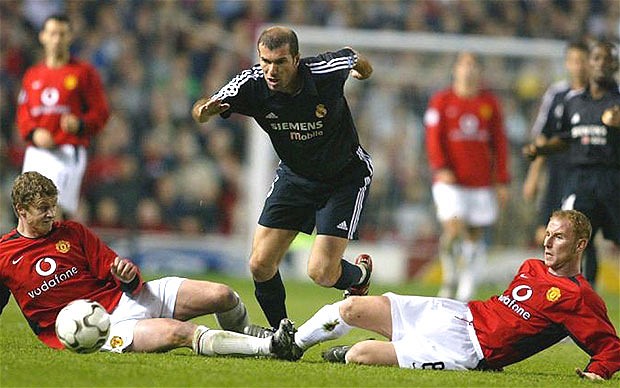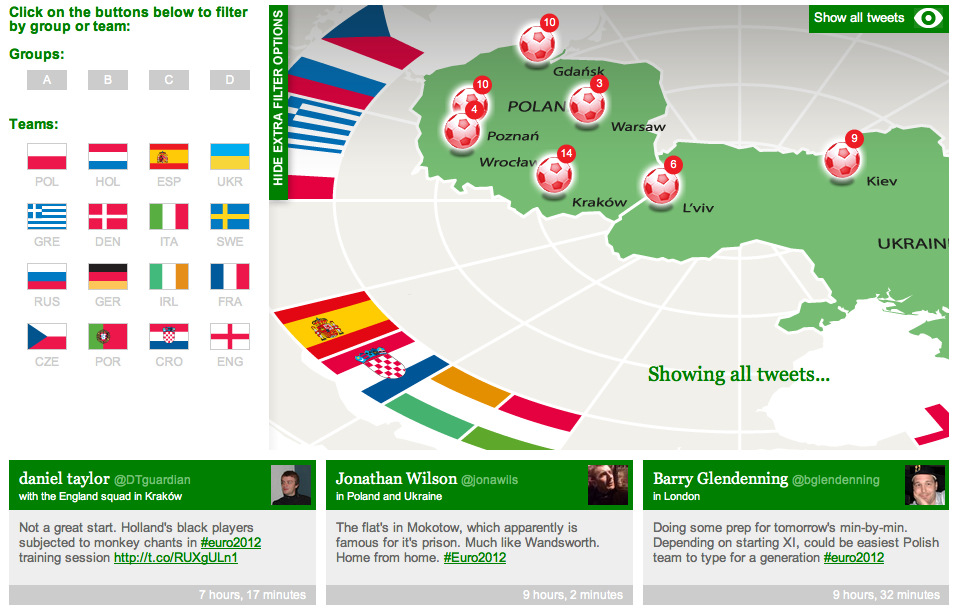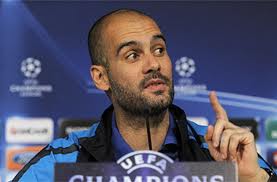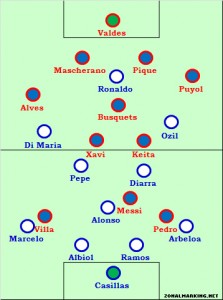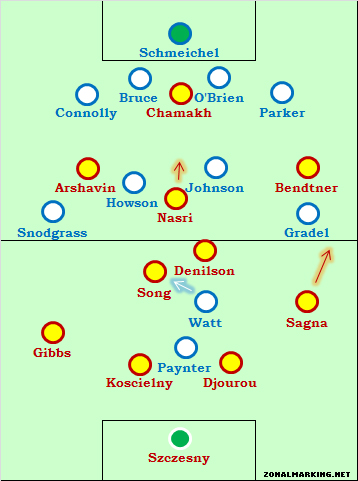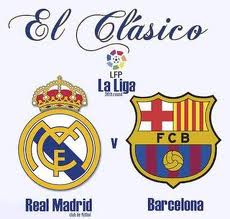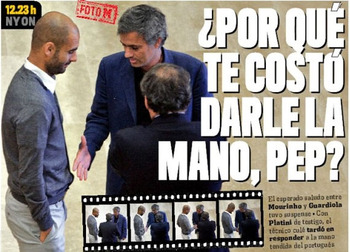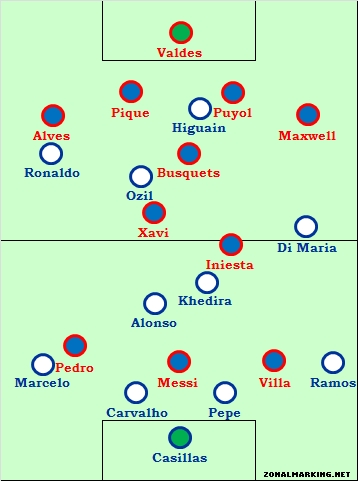Today is the match of matches–at least of the season thus far: Real Madrid vs Manchester United, at El Bernabéu.
It’s the 1st leg of their Champions League Round of 16 draw, certainly a huge and highly anticipated match (though sophisticated football hipsters know that Shakhtar Donetsk vs Borussia Dortmund–also playing today, at the Donbass Arena–is the truly interesting matchup of the the Round of 16).
For previews of today’s match, read ZonalMarking’s tactical preview listicle here (the takeaways, or posited by Adam Novy before he read Michael Cox (see Appendix 1 below for more): “Smother Ronaldo, sit on Xabi, hope that Carrick isn’t smothered); and/or listen to Michael Cox, Sid Lowe and Barney Ronay on Monday’s rather epic pod.
For a history Madrid-Manchester United, the Telegraph has put together a nice feature: “Real Madrid v Manchester United: all of their past meetings have been a history of entertainment“, with embedded YouTube clips of the 1957 European Cup semi-final, 1968 European Cup semi-final, 2000 Champions League quarter-final, and 2003 Champions League quarter-final.
The 2000 quarterfinal tie was given a very close reading by Rob Smyth in this fascinating essay on thefcf.co.uk (also printed in The Blizzard, Issue One)–what writer and longtime United supporter/observer Adam Novy immediately remembered as “The Redondo Game.” See Appendix 2 below for Smyth’s intro paragraphs.
Appendix 1: As promised above, here’s a fuller exclusive excerpt–well, not exclusive if you’re fb friends with him–of Adam Novy’s thoughts going into today’s match:
Push the ball to Ronaldo and drive him to the sideline. Sit on Xabi Alonso and make someone else pass it out of the back. Pray that Madrid hates each other more than they hate losing. Also: don’t play Cleverly, Anderson, and Kagawa simultaneously. None of them can last for 90 minutes. Give Nani a chance. if he plays well in the first leg, offer him a massive contract to keep him happy.
Let the likes of Danny Welbeck and Phil Jones run like headless chickens in Madrid’s half, especially at Pepe and the backup goalie. Do not concede in Madrid. A scoring draw is bad against a cunning Spanish team. Win 2-0.
Though minutes later:
Beating Utd is actually very easy, if you have the players. Sit on Michael Carrick and force someone else to pass it out of the back. Charge your whole center midfield up the middle. Utd does not track back well. Finish the chances you get and keep up the pressure. Southampton tried to do this but they don’t have the finishers. Madrid have the finishers. Maybe play Kaka? He’s Madrid’s best goalscoring midfielder.
Appendix 2: The opening paragraphs of Rob Smyth’s close read:
A football match lasts much longer than 90 minutes. It begins before the first whistle and continues beyond the final whistle. Every game has a back-story and a front-story, and matches exist in what the academic film critic Stephen Heath called an “englobingly extensive prolongation”. Few have had such an extensive prolongation as the immense Champions League quarter-final between Real Madrid and Manchester United in 2000 when Real, having drawn the first leg 0-0, won 3-2 at Old Trafford in a game notable for a staggering quality of attacking play and a legendary tactical switch from Vicente del Bosque.
In a sense the tie began 40 years earlier, when a teenage Alex Ferguson sneaked into Hampden Park and was spellbound by Madrid’s 7-3 evisceration of Eintracht Frankfurt in the European Cup final. And it continues to impact 11 years on; every time Manchester United line up for a big game at home or in Europe, their tactics are a direct consequence of that chastening experience against Madrid. Del Bosque spoke of United’s “tactical anarchy” that night, and Ferguson ensured such suggestions could never be made again. Put simply, up until that game his teams tried to score one more than the opposition; ever since they have tried to concede one fewer.
Real’s win ended United’s reign as European champions, at a time when many felt Ferguson’s young side were set to establish a dynasty, and also instantly restored their own faded glamour. It also changed Del Bosque’s life. Until then he had been Real’s odd-job man, almost a Spanish Tony Parkes, but that match set him on the road to becoming one of the most successful coaches of the early 21st century. All of that, and Ferguson’s tactical epiphany, mean that this was arguably the most epochal European match since Heysel — although for very different reasons. Del Bosque’s tactical brainwave caused shockwaves that would indelibly change the landscape of modern football.

